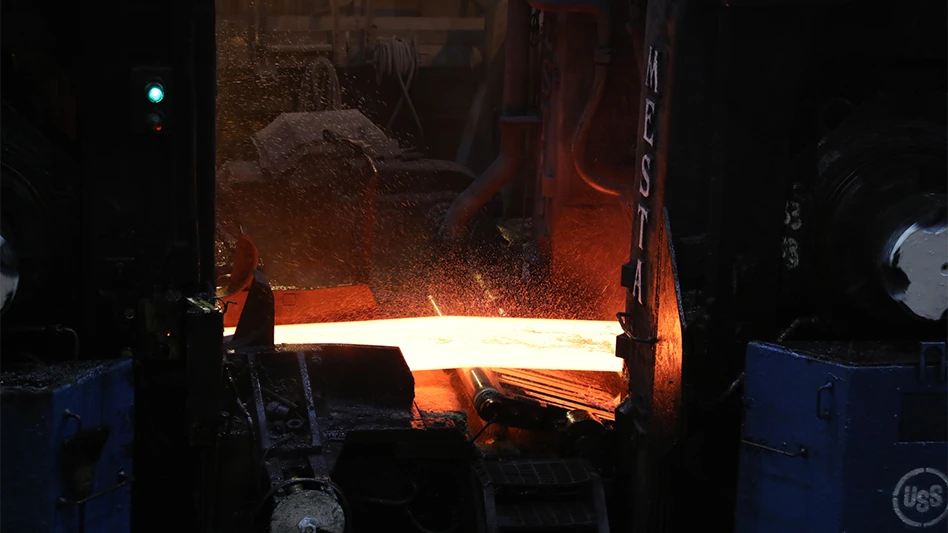
Photo courtesy of U.S. Steel
The U.S. national security review of Nippon Steel Corp.’s purchase of U.S. Steel Corp. could extend into 2025, Bloomberg reports, citing people familiar with the matter. At the time the deal was announced in mid-December, U.S. Steel said it expected the transaction to close in the second or third quarter of this year.
More than a half dozen U.S. senators, both Democratic and Republican, have urged regulators to either scrutinize or negate the deal, though not necessarily for the same reasons.
Sens. Sherrod Brown of Ohio and John Fetterman and Bob Casey of Pennsylvania have criticized U.S. Steel leadership for arranging the deal without the involvement of the United Steelworkers (USW) union. Competing bidder Cleveland-Cliffs, which has received Brown’s support, sought and received USW support for its acquisition bid.
Sens. Marco Rubio of Florida, Josh Hawley of Missouri and J.D. Vance of Ohio noted national security reasons for their opposition. “The steel industry remains critical to the United States for manufacturing, defense, and other critical capabilities,” they say in a news release. "Allowing a leading steel company to be controlled by a foreign nation, even an ally, raises serious economic and national security concerns, especially since there are viable options to maintain American ownership.”
Bloomberg says the interagency panel led by the Treasury Department can approve, block or amend the deal on national security grounds or send it to President Joe Biden for a decision.
In December, the White House said the deal deserves “serious scrutiny,” which earned the praise of the USW union, Bloomberg reports.
However, Jim Tankersley of the New York Times says the transaction puts Biden in an awkward situation as he attempts to balance revitalizing the nation’s industrial sector with rebuilding international alliances.
“This really should be a no-brainer," Sen. Josh Hawley, a Republican from Missouri, tells the New York Times. "I don’t know why it would be difficult to say, my gosh, we’ve got to maintain steel production in this country, and particularly a company like this one, where you have thousands of workers in good union jobs.”
Supporters of the sale say blocking it could anger Japan, a key American ally, with the New York Times noting Biden has sought Japanese collaboration on efforts that include countering Chinese manufacturing in clean energy and other emerging technologies. He also has welcomed Japanese investment in new American manufacturing facilities, including for advanced batteries.
The New York Times article also notes that former steel company executive Wilbur Ross, who served as commerce secretary in Trump’s administration, wrote in the Wall Street Journal that there is “nothing in the deal from which the U.S. needs defending.” That opinion piece was titled “Xenophobia Drives Foes of Nippon Steel’s Deal.”
“Nippon’s steelmaking is at least as advanced as U.S. Steel’s, so technology export control isn’t an issue. National security could be a concern if American mills were shutting down due to unfairly subsidized Japanese exports to the U.S.," Ross writes. "But Nippon never used gimmicks to avoid the Trump tariffs on steel imports. And its $14.1 billion investment in U.S. Steel is a powerful incentive against any dumping by Japan.”
Latest from Recycling Today
- BMW Group, Encory launch 'direct recycling’ of batteries
- Loom Carbon, RTI International partner to scale textile recycling technology
- Goodwill Industries of West Michigan, American Glass Mosaics partner to divert glass from landfill
- CARI forms federal advocacy partnership
- Monthly packaging papers shipments down in November
- STEEL Act aims to enhance trade enforcement to prevent dumping of steel in the US
- San Francisco schools introduce compostable lunch trays
- Aduro graduates from Shell GameChanger program





